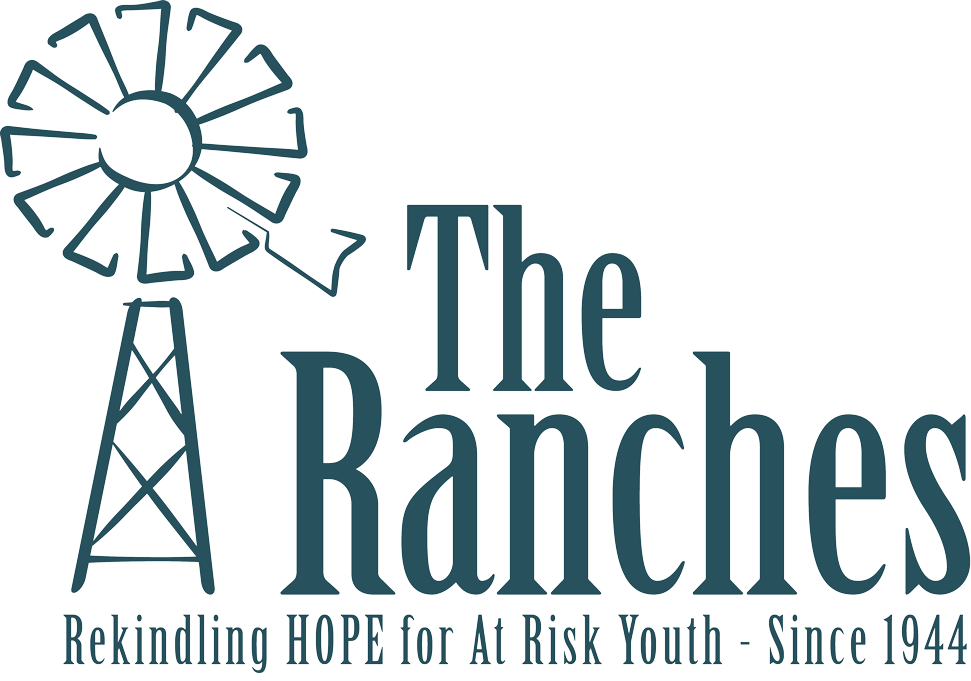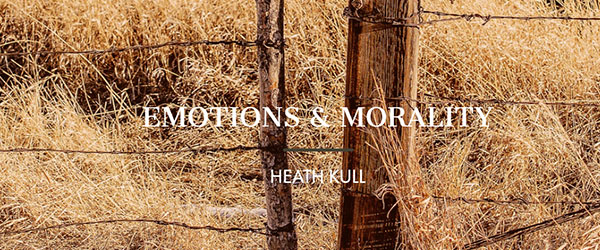Growing up on a ranch meant that I was raised with a certain amount of liberty. There is freedom in the country but there is also risk. So while I was free to try and jump on the back of a young steer and see how long I could ride, I was also risking ending up face down in the dirt with a few days of soreness; maybe even some stitches. In my experiences, freedom and risk have always come as partners. As a result, I also grew up with a code of ethics and acceptable behaviors. Being that I was on a ranch, and a ranch that helped “at-risk” young people at that, the code that we lived by became our morality. Since that code bore more than a passing resemblance to Biblical principles and western cowboy culture, our morality informed our feelings. In truth, our principles were our guideposts for our emotional responses. My how times have changed.
As I continue to work with “at-risk” young people, I am often surprised by the relatively new insistence in young people that their emotions be seen as their guideposts for morality. They often insist that their feelings be honored at all times and allowed to inform their morality. In essence, if something makes someone uncomfortable or hurts their feelings, many kids see that “something” as immoral, wrong and beneath their sensibilities. While I can understand how our feelings can lead us to attempt to define our own reality and morality, what if our feelings then hurt others and then they deem our feelings to be immoral, wrong and beneath their sensibilities. In my experience, this leads to two outcomes that are not conducive to healthy relationships.
1. A race to be offended and morally outraged. If morality is defined by our emotions, feeling bad makes me right and the offensive person wrong. Gone is the difference of opinion. Those differences are relegated to defining that those who hurt our feelings, challenge us, disagree with us, see the world differently, are just wrong and therefore bad.
2. Confusing and, at times, inconsistent boundaries. Since those that challenge us, hurt our feelings, disagree with us and see the world differently are wrong and therefore bad, we feel justified in setting boundaries that eliminate the icky, morally reprehensible people who hurt our feelings from our lives. Friendships lost, relationships gone, connections broken and community forgotten. Our boundaries that are based on our feelings eliminate many people and insure that we are only surrounded by those we agree with; those that are fragile – just like us.
Sadly, this tends to limit both growth and creativity. We must spend our energy attempting to not offend and to feel moral. We can’t see the world any differently as that may hurt our feelings.
The truth though, is that we are all different and we all have our own process and need space and support in processing our very big and sometimes hurtful world. Some people’s process begins with pain and ends with resolution and resolve. Others in our lives may have a process that starts with anger and traverses guilt, shame and fear in order to find resolution and resolve. If we deem anger, guilt, shame and fear as bad and immoral, we’ve decided that those people’s process is immoral and wrong; we deem their process unworthy of us being present and holding space open for it because we can’t handle it; because we’ve allowed our feelings to inform our morality about someone else’s process. Our fragileness then outweighs their needs. We are good! They are bad!
So, if we are truly desiring to live freely and to be at liberty to be ourselves, we have to give that same right to those around us; even the ones who disagree with us, hurt our feelings and challenge us. For those are the risky moments and risky relationships that allow our liberty and freedom to matter; and give us true open space to grow.
I hope we can again learn to honor each other’s processes and differences and get back to taking responsibility for our feelings and our morality. For feelings can’t be our compass as they are too finicky, subject to change and too easily manipulated. At the same time, morality cannot always allow for difference as it becomes unyielding and tyrannical when we don’t pair our morality with compassion.


